Perry Raso’s application to the CRMC to “Establish a three acre oyster and bay scallop farm using floating and suspended gear in Potter Pond, Narragansett, RI” has been formally recommended for denial by the Raso Subcommittee. This group listened to and considered an exhaustive amount of witness and expert testimony, letters for and opposed, lawyer discussions and deliberations among subcommittee members. While the November 9 meeting was a procedural move, as the subcommittee already voted to recommend denying the application back in March, 2021, an extensive packet of information has been officially handed to the full Council.
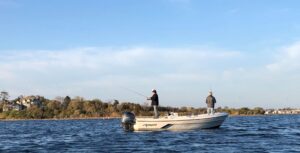
Casting for stripers in South Kingstown, RI’s Potter Pond
Potter Pond Gets Some Help
“And when the subcommittee’s matters go onto the full council for final consideration, only that evidence that wasn’t readily available during the subcommittee process or is new evidence that wasn’t available, could be heard by the full council,” said member Donald Gomez. “It’s to ensure that we don’t have the same hearing all over again at the full council.” It is hoped the Council will accept the subcommittee’s recommendation, especially considering the amount of opposition the application has received, but it is not obligated to. The Save Potter Pond group, a direct reaction to Raso’s application paved the way for a newly established RI Coastal Advocacy Coalition, which arose partly because of an increase in shellfish business applications in the East Bay. RICAC’s letter of concerns has been presented to the Special House Commission To Study the Coastal Resources Management Council. Read it here.
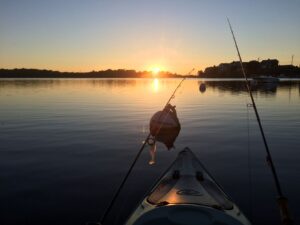
Sunrise in South Kingstown, RI’s Potter Pond
The Boston Globe’s Brian Amaral wrote a fine piece about the hearing and application. Read it here. Bob Smith of the ECORI news website wrote, “While the recommendation from the subcommittee is non-binding, it puts the entire eight-member council — it is two members short — in an awkward place if it chooses to allow the project to go forward.”
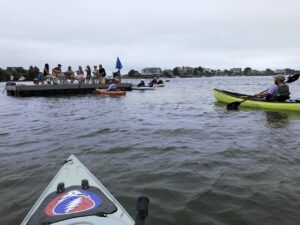
Protestors against a proposed shellfish farm gather and clap in Potter Pond, RI
RISAA Needs Your Help
The RI Saltwater Anglers Association is looking for help with their newsletter, committees and office work. Their monthly newsletter is full of local, state and federal fisheries information that affects recreational fishing, stocks and access, member tips, classifieds and regular columns from committee chairs and members. If you are interested in writing something for the newsletter or helping to put the whole deal together each month, please contact news@risaa.org or call the RISAA office at 401-826-2121. RISAA also needs help with their many groups, especially the Education, Tournaments and Scholarship committees, but your help on any one would be appreciated. They have a full list of committees at https://www.risaa.org/info/committees.html#index.
Finally, RISAA is on the search for some office help. Steve Medeiros, who recently passed, handled the bulk of all this work so new Executive Director Greg Vespe is searching to upgrade not only some software, but the overall organization’s organization. If you have expertise in managing databases and would like to help, reach out to Rich Hittinger at hittinger@risaa.org.
It’s Fly Tying Time
RIDEM has restarted their popular fly tying classes for anglers of all levels. If you have any inclination to learn the art of tying, want to brush up your skills or refill boxes after a very productive year, they are affordable, fun and loaded with great advice. Classes cost just five dollars and are typically hosted by highliners like the United Fly Tyers of RI to help you with fresh and saltwater fly patterns. And they provide all the tying tools and materials, just in case you’re running low on hackle and dubbing. Join them on Monday nights through December 6 from 6:30 to 8:30 pm at the Cold Spring Community Center, 36 Beach Street in North Kingstown. For more information, contact Kimberly Sullivan with Fish and Wildlife’s Aquatic Resource Education Program at 401.539.0037 or at kimberly.sullivan@dem.ri.gov.
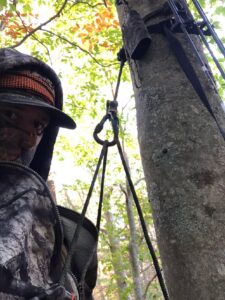
Tom Adams, safe in his deer hunting saddle
Deer hunting season is in full swing now and Tom Adams, known for his uncanny ability to find fish from his Wilderness Systems kayak or his center console, has some solid advice for us. “ I had seen quite a few deer, with a lot of rut activities including small spike horns chasing the hot doe and grunting the entire time. I had taken a shot on a six pointer, my arrow didn’t hit its mark. If I’m going to miss, I want to miss clean,” Tom said. “When I did get my arrow, I noticed a fletch was missing. I went to Trader Jan’s Archery Pro Shop to get some new arrows and have my bow serviced. Turned out my d-loop was off as well as my sight, only thing I can think is that I wasn’t careful on my way into the woods or hoisting my bow up the tree in the dark. So without having a harvest to show for my efforts, I have a couple takeaways. One is to take more care of your equipment so you can hit your mark. Take some shots every day if you can or before you head out for a hunt to make an ethical kill,” advised. Tom recently switched to a tree saddle instead of a traditional tree stand, “Each time making some adjustments to make the sit more comfortable and shot opportunities more fluid motions. Saddle hunting has replaced my climber and I wouldn’t go back,” Tom said. Ethical hunting with clean shots from a comfortable position sounds like the makings of a great season. Thank you Tom.
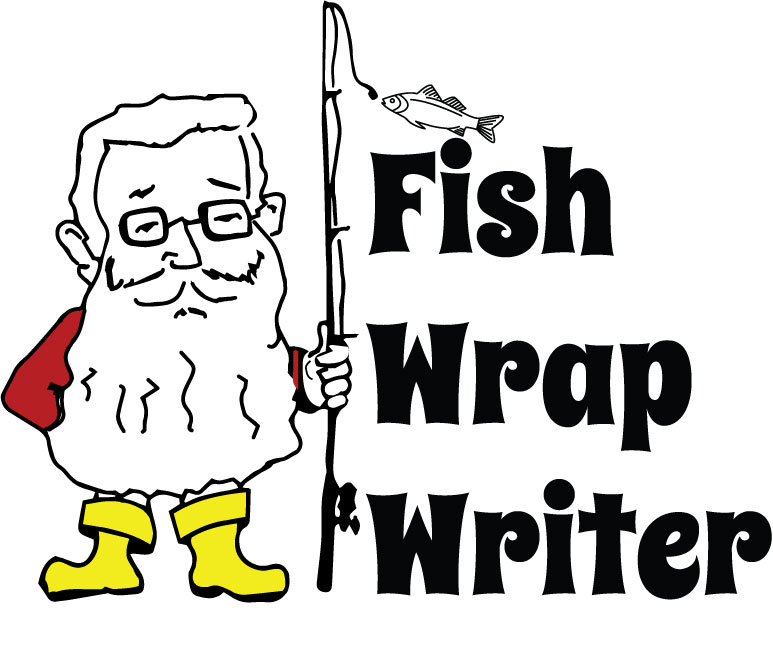
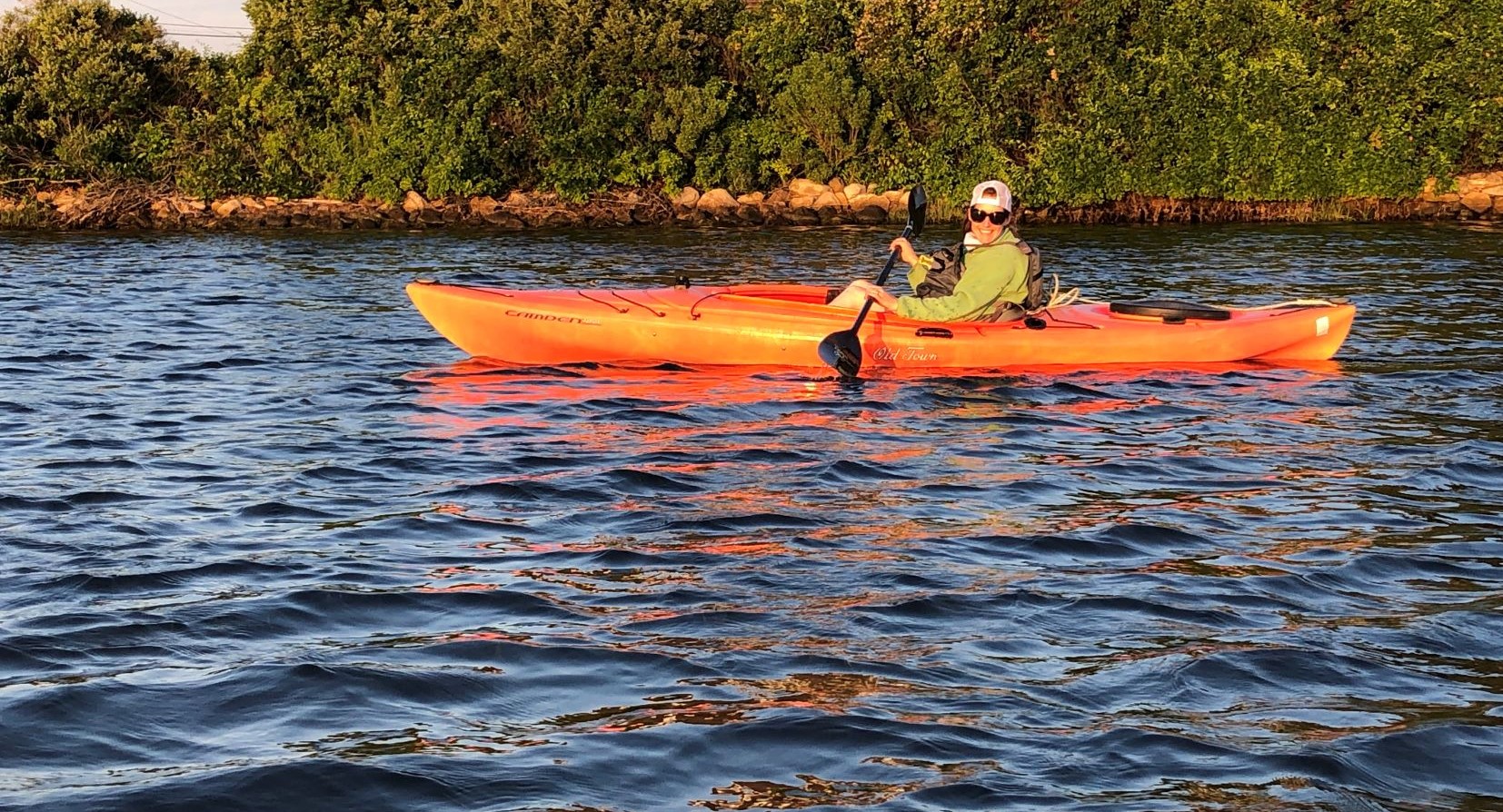

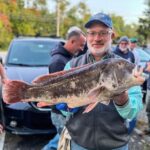


0 Comments